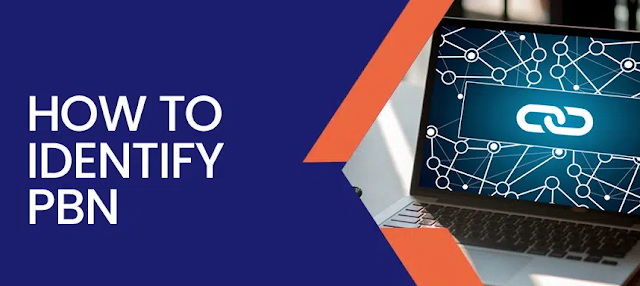Free Guest Posting Sites with Author Accounts 2024 [Verified]
While there are numerous websites that accept guest posts,
it's essential to note that the landscape of guest posting can change, and
websites may update their policies. Additionally, the quality and relevance of
your content play a crucial role in being accepted for guest posting. Here are
some websites where you might consider submitting 1000-word guest posts:
·
Medium: A popular platform for
various topics. Anyone can publish, and Medium allows longer-form content.
·
HubPages: HubPages is a platform that
allows users to publish articles on a variety of topics.
·
LinkedIn: LinkedIn's publishing
platform allows you to share long-form content with your professional network.
·
EzineArticles: An article
directory that accepts submissions on a wide range of topics.
·
ArticleBiz: Similar to EzineArticles,
ArticleBiz is an article directory that accepts guest contributions.
·
Blogger: You can find blogs on
Blogger that accept guest posts. Connect with bloggers in your niche and
inquire about guest posting opportunities.
·
WordPress.com: Some WordPress blogs
accept guest posts. Reach out to blog owners and inquire about guest posting.
·
B2B Marketing: If your
content is related to B2B marketing, you can submit guest posts on this site.
·
TechWyse: TechWyse accepts guest posts
related to digital marketing, SEO, and other online marketing topics.
·
GoDaddy Garage: GoDaddy Garage accepts
guest posts on web development, design, and online business topics.
Remember to review the guidelines and policies of each website before submitting your content. Focus
on providing value to the readers and ensuring that your content aligns with the website's audience and theme. Additionally, building relationships with bloggers and website owners in your niche can increase your chances of being accepted as a guest contributor.
| SR | Website | User Name | Password | DA | Password |
| 1 | https://wpreset.com/ | https://wpreset.com/write-for-us/ | N/A | 55 | No Info |
| 2 | https://underconstructionpage.com/ | Contact Us | N/A | 58 | No Info |
| 3 | gettoplists.com/wp-admin/ | rojerherry | GetToplists@#$12344 | 56 | Working |
| 4 | acuteposting.com/wp-admin/ | manojadword95 | Manoj@11 | 54 | Working |
| 5 | dailybusinesspost.com/wp-admin/ | manojadword95@gmail.com | gXFO^rAYA6jjs$6s | 55 | Working |
| 6 | businesstalkers.com/wp-admin/ | addisonparker07 | addisonseo@123. | 12 | Working |
| 7 | theforbesnews.com/wp-admin/ | Alex James | Alexjames@0 | 1 | Working |
| 8 | techsplace.com/wp-admin/ | manojadword95 | @xEe6cL&LswL2X!y | 31 | Working |
| 9 | zoombazi.com/wp-admin/ | sheenasharma845 | ziploan@32145 | 54 | Working |
| 10 | lexcliq.com/wp-admin/ | Sheena Sharma | sheenasharma845 | 40 | Working |
| 11 | marketfobs.com/wp-admin | janeausten | janeausten123 | 54 | Working |
| 12 | taguas.info/wp-admin/ | guestuser | guestpost@1234 | 15 | Working |
| 13 | havily.com/wp-admin | sharmasheena845@gmail.com | eF7aHb8)gGdiQ(M# | 55 | Working |
| 14 | globalnetbit.com/login | wilson | wilson456 | 26 | Working |
| 15 | themeganews.com | sheenasharma845 | Ziploan@32145 | 52 | Working |
| 16 | themagazinelite.com/wp-admin | sharmasheena | ziploan@32145 | 53 | Working |
| 17 | knowodyssey.com/wp-admin | sharmasheena845@gmail.com | ziploan@32145 | 54 | Working |
| 18 | techtigger.com/wp-login | sharmasheena845@gmail.com | ziploan@32145 | 53 | Working |
| 19 | dailysandesh.com | sheenasharma845 | Oqygvj2j9P | 51 | Working |
| 21 | ibusinessday.com/wp-admin | sheenasharma845 | ziploan@32145 | 53 | Working |
| 22 | nboxoffice.com/wp-admin | sharmasheena | XiJQcWbZjJVry5y^ | 54 | Working |
| 23 | nowreleasing.com/wp-admin/ | anujmanoj95 | 0UKdzdU3xyLoLX)^nsp*5Uy$ | 1 | Working |
| 24 | tweakvip.info/wp-admin | John Peter | @johnpeter | 43 | Working |
| 25 | themeganews.com/wp-admin | sharmasheena845@gmail.com | hck*@RbGUkZ^3)DY | 52 | Working |
| 23 | nboxoffice.com/wp-admin | sharmasheena | XiJQcWbZjJVry5y^ | 56 | Working |
| 24 | wpostnews.com/wp-admin | sharmasheena | A^8hBXu9f7o%Gxyq | 57 | Working |
| 25 | ultimatetech.co.in/wp-admin | sharmasheena | xHGF0#0&xYT%eF2# | 52 | Working |
| 26 | vedamalhar.com/wp-login | sharmasheena845@gmail.com | d^BaAJL5aU5gVlS! | 63 | Working |
| 27 | foxdenlane.com/wp-login | sharmasheena845@gmail.com | d^BaAJL5aU5gVlS! | 53 | Working |
| 28 | techmarkes.com/wp-admin | sharmasheena845@gmail.com | guY(Qd)jO&GiOV(e | 53 | Working |
| 29 | businesshubnews.com/wp-admin | sharmasheena845@gmail.com | p9@!mJGZytP&Thgx | 53 | Working |
| 30 | abcwatchlive.com/wp-admin | sharmasheena845@gmail.com | ziploan@32145 | 39 | Working |








![Free Guest Posting Sites with Author Accounts 2024 [Verified]](https://blogger.googleusercontent.com/img/b/R29vZ2xl/AVvXsEi594UuJgk7ty2Rn6MOI6VspAHxPymd__3nY-g_Zma5vH5A5jqpljaPWullrPAqfj4yWOve6YyOu2qMP6N46QqK1VETPYZxOupZ5bkFfvPuiT7cfMUfLJuJ7DxHTZ8DvwRBv2Zc1dEoezJZup0_HNjUrGu6r3i4NXV58ahyphenhyphenfsjaSrDh0TSitKrejPqcNbM/w72-h72-p-k-no-nu/free-guest-post-sites-with-author-accounts.png)


